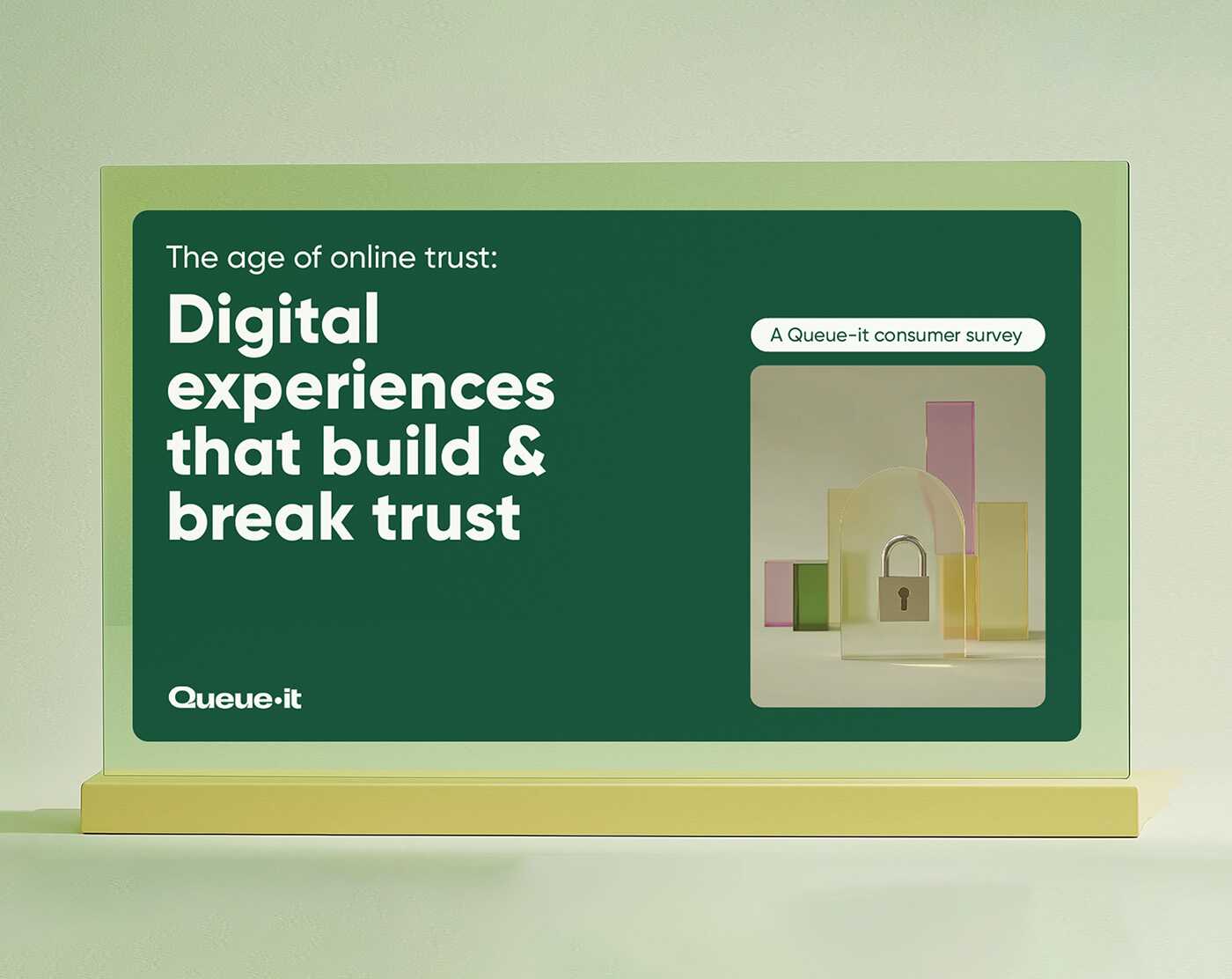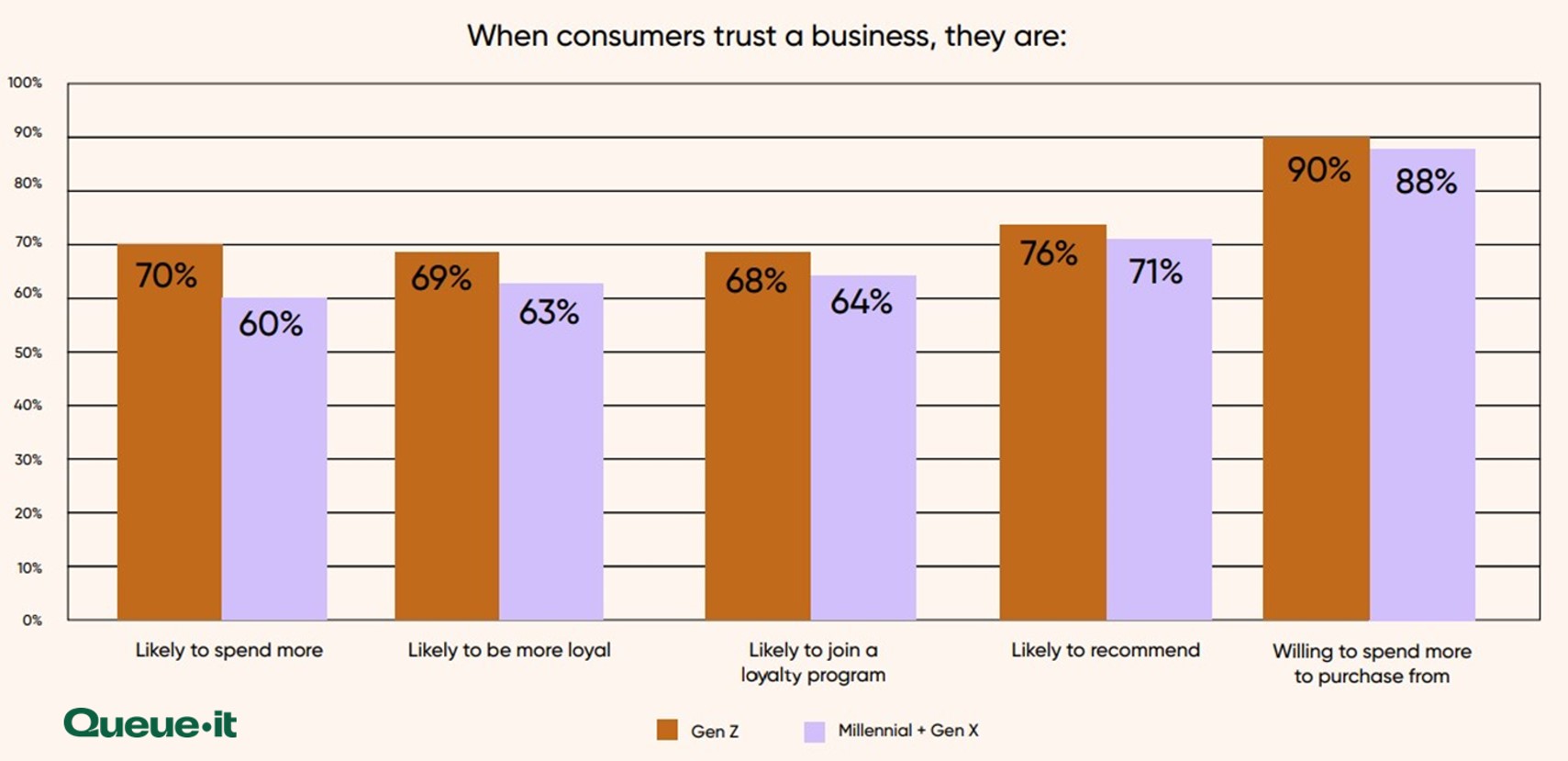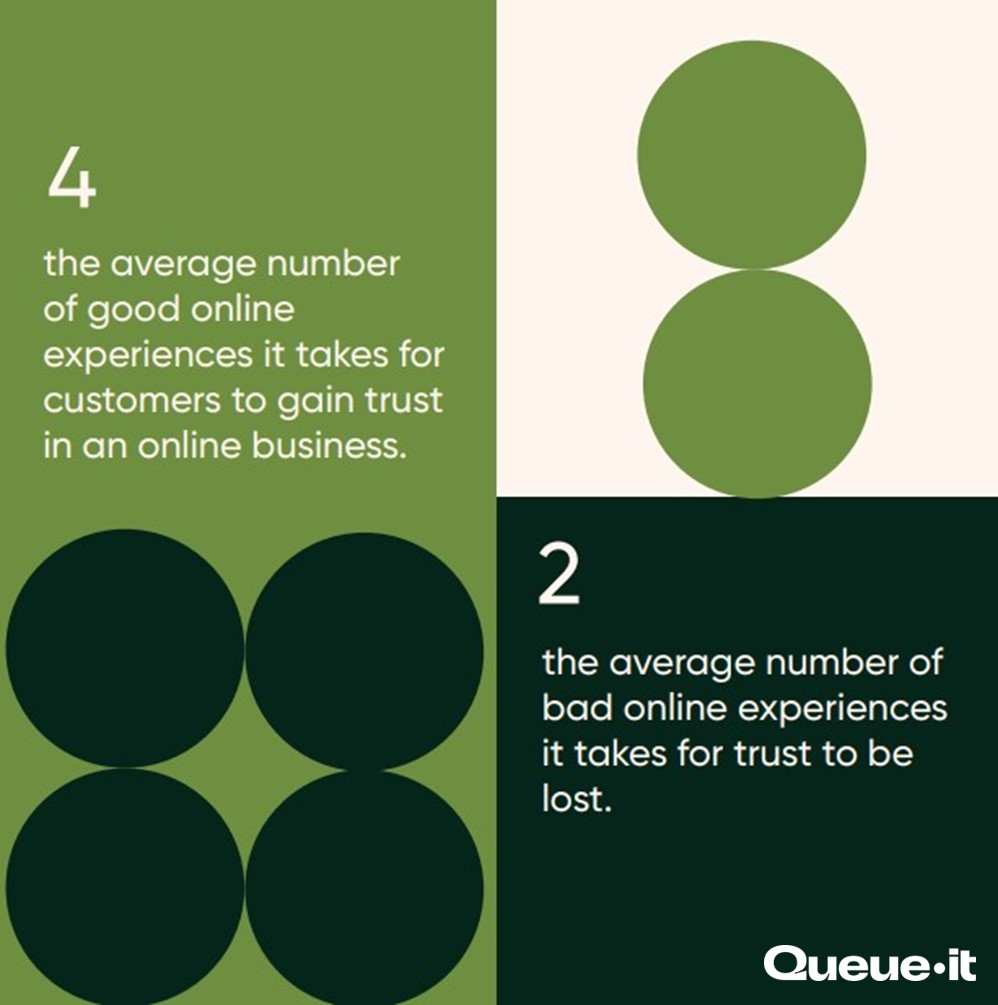Consumer trust statistics: The Age of Online Trust Report

Trust is the new currency in the digital world. Queue-it's survey of 1,000+ global consumers reveals which online experiences build trust, which break it, and why reliability now matters more than speed. Explore the key consumer trust statistics shaping the future of digital interactions.
Winning the trust of consumers has always been essential to the success of organizations across industries, from retail to ticketing to governments.
But as more of our interactions and transactions move online, the trust landscape is shifting. How do today’s consumers value trust? What do they expect from digital organizations? And what aspects of online experiences build and break trust?
In Queue-it's The Age of Online Trust report, we surveyed 1,000+ consumers from across the globe to get answers to these questions and find brand trust statistics that reveal how to win in today’s online world.
In this blog, we’ll reveal the key digital consumer trust statistics from the survey, including:
- Trust matters most to Gen Z consumers
- Trust is hard to win and easy to lose
- Reliability is more important than speed
Explore the full Age of Online Trust report

60% of consumers said their expectations for the quality of online experiences increased in the last year alone. This growth was highest among Gen Z consumers, 68% of whom said their expectations increased.
But Gen Z consumers don’t just expect more from online experiences, they also place more value on trust in online businesses, indicating a generational shift towards trust as the new currency in the online world. When Gen Z consumers trust a business:
- 70% are more likely to spend more with that business (vs. 60% for Millennials & Gen X)
- 69% are more likely to be more loyal to that business (vs. 63%)
- 76% are more likely to recommend that business (vs. 71%)
- 68% are more likely to join that business’ loyalty program (vs. 64%)
- 90% would spend 10% or more on a product to buy it from a business they trust (vs. 88%)
As Gen Z takes on an increasingly large share of the consumer economy, it’s clear trust will guide their purchase decisions and spending habits more than previous generations. This makes it essential to deliver experiences that build and nurture trust online—and to avoid at all costs experiences that break trust.

Respondents told us that it takes an average of four good online experiences for them to say they trust a business, but just two bad online experiences for them to lose trust in a business.
It’s twice as hard to win trust as it is to lose it.
When asked about “poor” online experiences that damage trust, respondents gave us several statistics about bad customer experiences:
- 66% of consumers are less likely to trust a business after experiencing overselling
- 64% are less likely to trust a business after experiencing a website crash
- 50% are less likely to trust a slow website

When asked about the “good” online experiences that build trust:
- 74% say a reliable website or app is key to driving trust
- 73% say transparent online experiences are key to driving trust
- 68% are more likely to trust a business that blocks bots and scalpers
- 56% are more likely to trust businesses that ensure fair access to sales or registrations (this jumps to 65% among Gen Z consumers)

When trust is won over four good experiences and lost after just two, ensuring reliable, consistent, error-free experiences is key to winning the confidence of consumers.
When asked about the key aspects of online experiences that drive trust, 74% chose a reliable website or app.
Reliability was in fact more important to consumers than speed, which is often the key focus for website optimization. Given the choice, the overwhelming majority of consumers said they’d prefer to wait for a reliable experience.
The key website speed statistics from the survey were:
- 87% of consumers prefer a short wait for a website that works than immediate access to a slow or buggy website
- 84% prefer an online queue to a crashed website or error page
- Consumers would wait an average of 53 minutes in an online queue to buy a limited-inventory product
84% of consumers prefer an online queue to an error page or crashed website
It’s clear that trust is crucial to the success of every organization in the new digital landscape, and its importance will only continue to grow along with the next generation of consumers.
The Age of Online Trust Report revealed that the first step in any strategy to capitalize on the growing importance of trust is to ensure that you can deliver reliable, consistent, error-free experiences through every interaction.
It takes twice as many good experiences to build trust as it takes bad experiences to break trust. So, while faster speeds, personalization, and flashy UI are important, they’ll only help you if they’re built on the solid foundation of a website or app that rarely crashes or produces errors.
Avoiding these issues is so important that consumers say they’d actually prefer to wait in an online queue—sometimes for almost an hour—just to get a smooth, error-free experience.
Virtual waiting rooms, or online queue systems, help organizations achieve this goal of delivering reliable, fair, and transparent online experiences, even through peak traffic moments like concert ticket sales, product launches, and high-profile public sector registrations. They give you control over the flow of traffic, so you can control your customer experience—no matter the demand.
Queue-it is the market leading virtual waiting room solution, having served over 110 billion users across 172 countries. With a mission to power online trust, Queue-it helps the world’s biggest businesses to perform on their busiest days. When Ticketmaster, IKEA, and the State of New Hampshire need to manage high-demand events, they turn to Queue-it. Book a demo today and start preparing for your next high-profile sale or registration.